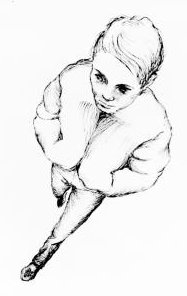Related Research Articles

The National Film Board of Canada is Canada's public film and digital media producer and distributor. An agency of the Government of Canada, the NFB produces and distributes documentary films, animation, web documentaries, and alternative dramas. In total, the NFB has produced over 13,000 productions since its inception, which have won over 5,000 awards. The NFB reports to the Parliament of Canada through the Minister of Canadian Heritage. It has bilingual production programs and branches in English and French, including multicultural-related documentaries.

William Norman McLaren, LL. D. was a Scottish Canadian animator, director and producer known for his work for the National Film Board of Canada (NFB). He was a pioneer in a number of areas of animation and filmmaking, including hand-drawn animation, drawn-on-film animation, visual music, abstract film, pixilation and graphical sound. McLaren was also an artist and printmaker, and explored his interest in dance in his films.

Cinema in Canada dates back to the earliest known display of film in Saint-Laurent, Quebec, in 1896. The film industry in Canada has been dominated by the United States, which has utilized Canada as a shooting location and to bypass British film quota laws, throughout its history. Canadian filmmakers, English and French, have been active in the development of cinema in the United States.

The Kainai Nation is a First Nations band government in southern Alberta, Canada, with a population of 12,800 members in 2015, up from 11,791 in December 2013.

Alanis Obomsawin, is an Abenaki American-Canadian filmmaker, singer, artist, and activist primarily known for her documentary films. Born in New Hampshire, United States and raised primarily in Quebec, Canada, she has written and directed many National Film Board of Canada documentaries on First Nations issues. Obomsawin is a member of Film Fatales independent women filmmakers.
Robin Spry was a Canadian film director, producer and writer. He was perhaps best known for his documentary films Action: The October Crisis of 1970 and Reaction: A Portrait of a Society in Crisis about Quebec's October Crisis. His 1970 film Prologue won the BAFTA Award for Best Documentary.
Cosmic Zoom is a 1968 short film directed by Robert Verrall and produced by the National Film Board of Canada. It depicts the relative size of everything in the universe in an 8-minute sequence using animation and animation camera shots.

Walking is a 1968 Canadian animated short film directed and produced by Ryan Larkin for the National Film Board of Canada, composed of animated vignettes of how different people walk.
Beverly Shaffer is a filmmaker in Montreal, Quebec, Canada. Shaffer spent the bulk of her professional career with the National Film Board of Canada (NFB), directing short documentaries and dramas. Her documentary I'll Find a Way, about a young girl with spina bifida, won the 1977 Academy Award for Best Live Action Short Film.
Challenge for Change was a participatory film and video project created by the National Film Board of Canada in 1967, the Canadian Centennial. Active until 1980, Challenge for Change used film and video production to illuminate the social concerns of various communities within Canada, with funding from eight different departments of the Canadian government. The impetus for the program was the belief that film and video were useful tools for initiating social change and eliminating poverty. As Druik says, "The new program, which was developed in tandem with the new social policies, was based on the argument that participation in media projects could empower disenfranchised groups and that media representation might effectively bring about improved political representation." Stewart, quoting Jones (1981) states "the Challenge for Change films would convey messages from 'the people' to the government, directly or through the Canadian public."
Joan Pennefather is a Canadian film and cultural executive. She was the first woman to be the Commissioner of the National Film Board of Canada (NFB).

James Beveridge (1917–1993) was a Canadian filmmaker, author and educator. Beveridge was a pioneering filmmaker at the National Film Board of Canada (NFB) and became Head of Production at the NFB in the post-war years.
Evelyn Lambart was a Canadian animator and film director with the National Film Board of Canada, known for her independent work, and for her collaborations with Norman McLaren.

Joseph (Joe) Koenig is a Canadian filmmaker and entrepreneur who was the founder and president of Electronics Workbench.
Unikkausivut: Sharing Our Stories is a 2011, two-volume DVD boxset, website and educational resource from the National Film Board of Canada (NFB), bringing together films by and about the Inuit of Canada. The collection traces the development of filmmaking in Northern Canada, from the ethnographic films by NFB filmmakers in the 1940s, to contemporary work by Elisapie Isaac and other Inuit filmmakers.

MediaSmarts is a Canadian non-profit organization and registered charity based in Ottawa, Ontario, that focuses on digital and media literacy programs and resources. In particular, the organization promotes critical thinking via educational resources and analyzes the content of various types of mass media.

Studio D was the women's unit of the National Film Board of Canada (NFB) and the world's first publicly funded feminist filmmaking studio. In its 22-year history, it produced 134 films and won 3 Academy Awards. Cinema Canada once called it the "Jewel in the Crown Corporation."
The Federal Women's Film Program (FWFP) was created in 1980 by the Canadian government as a partnership of federal ministries and agencies to create and distribute films about the status of women. Studio D handled the administration of it in both French and English. Its creation was an attempt to address the “swelling demand for women-centered films and filmmaking opportunities”, as many female freelancers were becoming increasingly frustrated with the dozen staff members employed by Studio D who had the privilege of permanent positions. In 1987, the program was revived by executive producer Rina Fraticelli and was charged with “producing shorter, basic information films dealing with issues of immediate concern to Canadian women, including domestic violence, reproductive choice, career choice, health care, and aging.”
The 4th Canadian Film Awards were presented on April 27, 1952 to honour achievements in Canadian film.
The 2nd Canadian Film Awards were presented on April 19, 1950 to honour achievements in Canadian film. The ceremony was hosted by Prime Minister Louis St. Laurent.
References
- ↑ (nd) Population Report Archived 2011-07-06 at the Wayback Machine . Canada Public Service Agency. Retrieved 7/7/07.
- ↑ (nd) Company of Young Canadians Fond. McMaster University. Retrieved 7/7/07.
- ↑ (1969) Company of Young Canadians Accused of Terrorism. CBC. Retrieved 7/7/07.
- ↑ Cardinal, Gil. "The Aboriginal Voice: the National Film Board and Aboriginal Filmmaking through the Years". NFB Playlist. National Film Board of Canada. Retrieved 2 December 2009.